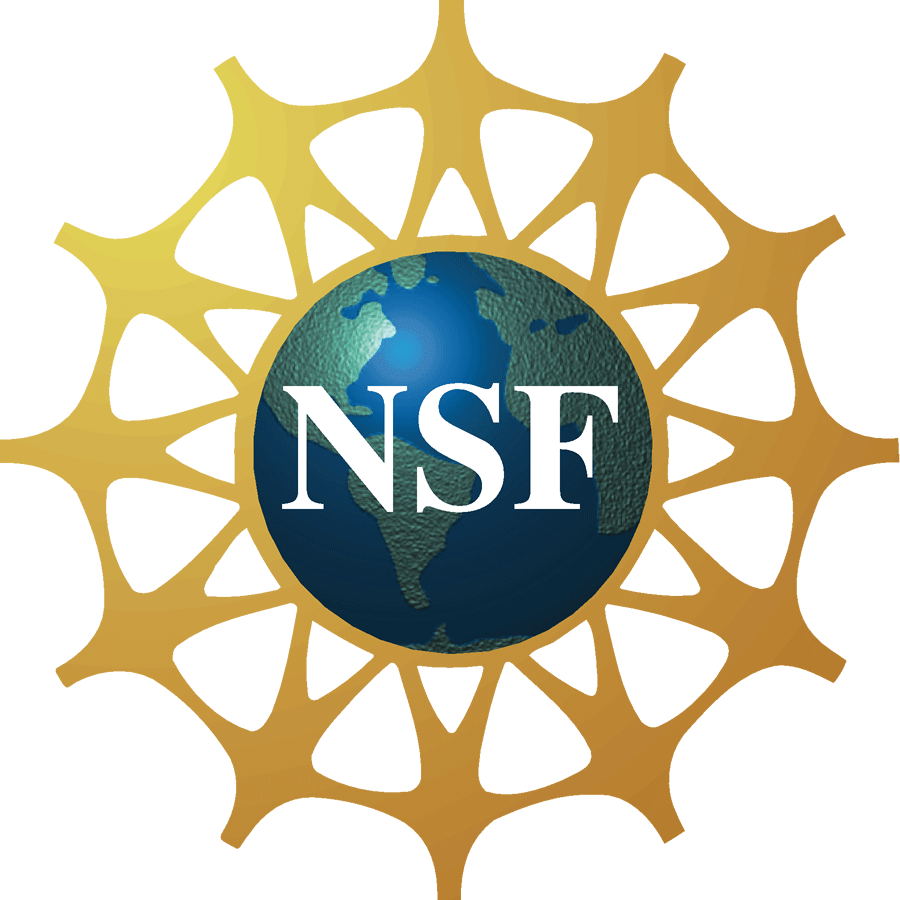Seminars and Panels
|
Ethical Paradoxes of
Control: Science, Engineering, and the Expansion of Moral Responsibility.
Dr. Rachelle Hollander
|
Mar 3, 2014
|
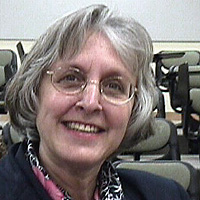
People value increased control. Science and engineering do increase control and their marketing emphasizes that potential. Historically, support for science and engineering rests on the view that they will improve human well being and enabling control is part of that. Unfortunately or fortunately, increased control brings with it both untoward effects (which can be interpreted as diminished control), and human demands for higher levels of both control and moral responsibility. This cycle may be vicious or virtuous - sometimes both. An example of a virtuous cycle is the increasing demands for humanitarian assistance - control over the technologies that can move goods such as food and water make this assistance possible. An example of a vicious cycle is the diminishing societal control over drone and biosynthetic technologies that are part and parcel of what can be called scientific and technological advances. The fundamental ethical paradox being referred to here is created by the disparity between a natural (hoped for) assumption that science and engineering control would diminish the need for moral responsibility, and the actual result, which is always to augment that need.
About Dr. Rachelle Hollander
Rachelle Hollander directs the Center for Engineering, Ethics, and Society (CEES) at the National Academy of Engineering (NAE), which manages the NAE Online Ethics Center (www.onlineethics.org), a widely used resource for engineering and research ethics education. She is currently principal investigator on several National Science Foundation (NSF)-funded projects and subcontracts. For many years Dr. Hollander directed science and engineering ethics activities at NSF where she was instrumental in the development of the fields of research ethics and professional responsibility, engineering ethics, and ethics and risk management. She has written articles on applied ethics in numerous fields, and on science policy and citizen participation. Dr. Hollander is a Fellow of the American Association for the Advancement of Science (AAAS) and a member of the Governing Board of the Association for Practical and Professional Ethics (APPE). In 2006, Dr. Hollander received the Olmsted Award “for innovative contributions to the liberal arts within engineering education” from the American Society of Engineering Education’s Liberal Education Division. She received her doctorate in philosophy in 1979 from the University of Maryland, College Park.
Click here to view the presentation. |
Click here to view the webcast. |
||
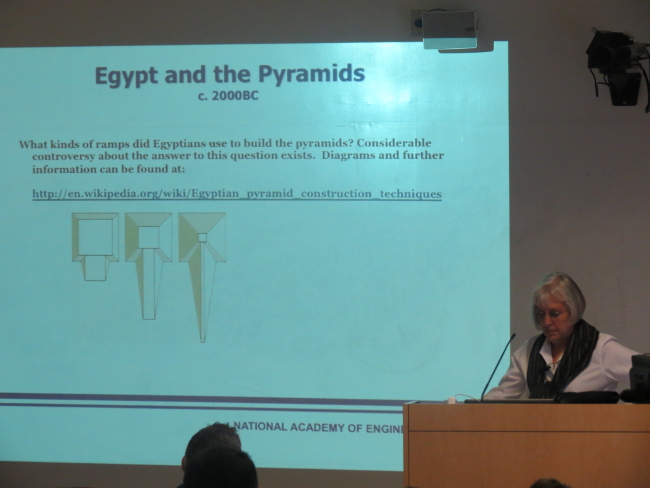
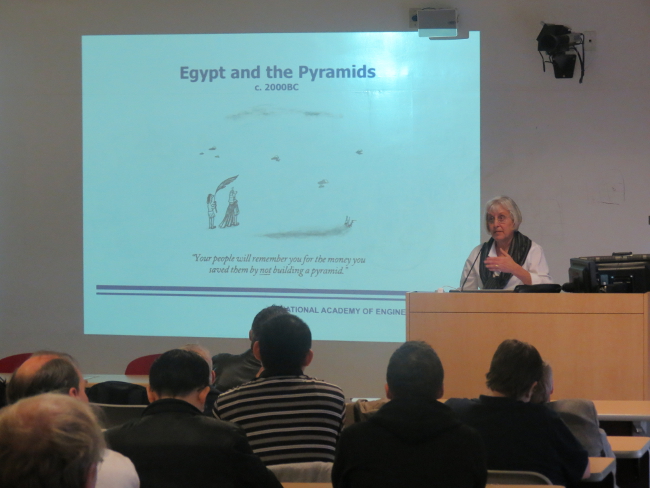
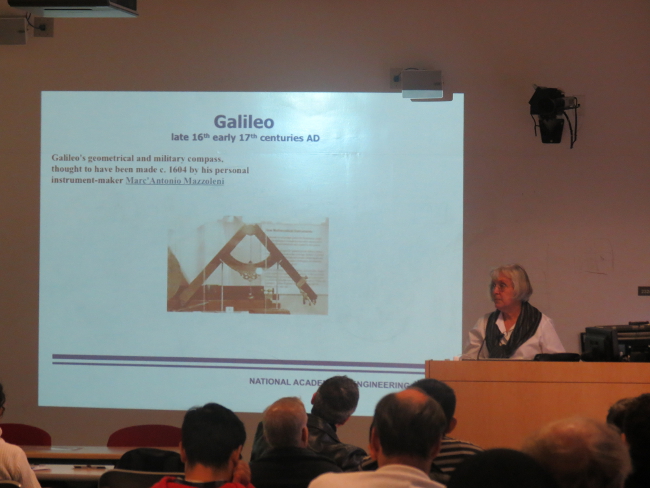
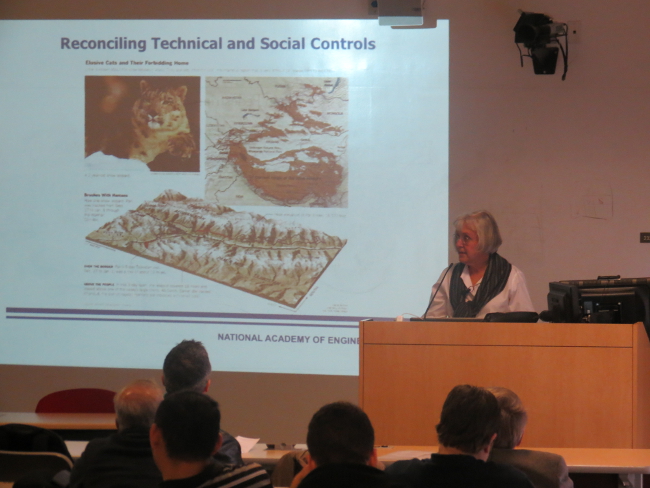
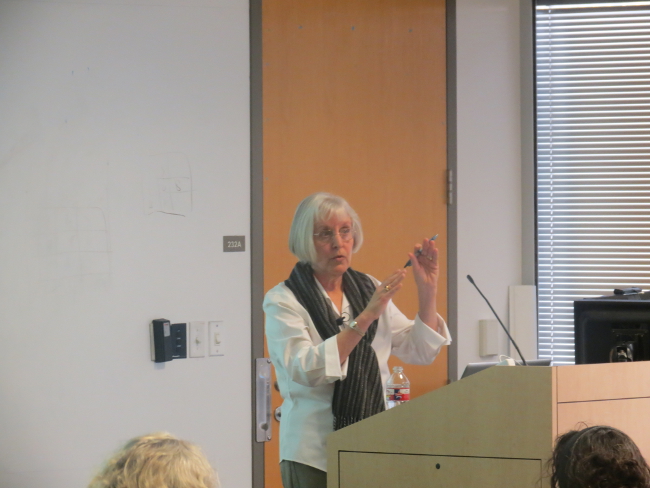
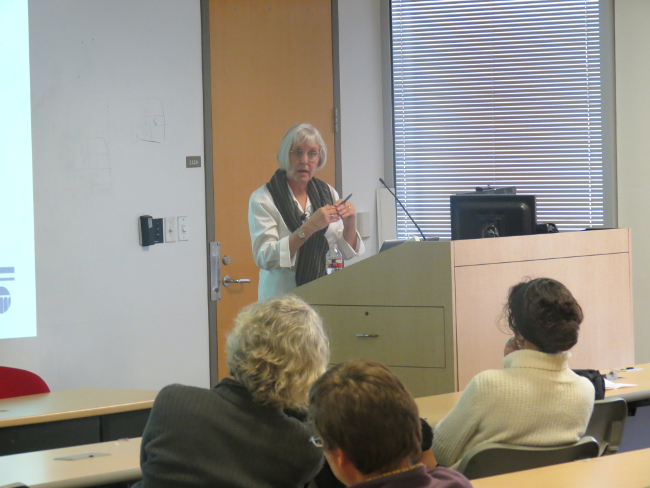
Audience Feedback |
n = 30 |
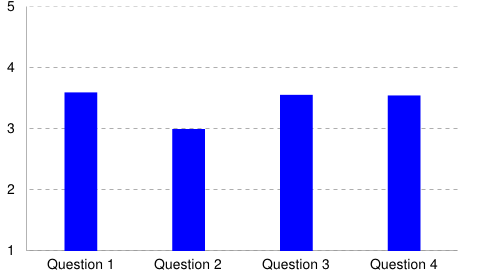
Question 1 - How interesting was the topic to you?
Question 2 - Did you learn anything useful?
Question 3 - How would you rate the quality of the presentation?
Question 4 - How would you rate the quality of the audience's interaction with the speaker?
Selective Comments
"Very interesting seminar providing ethical solutions in parallel with those which define the problems and challenges."
"Really enjoyed the explanation upon the involvement of the state in spurring advancements."
- 2017 - 2018
- 2016 - 2017
- Behavioral Concepts and the Sciences of Human Behavior
H. Longino Apr 21, 2017 - Insane Asylums and Genetics: How Human Heredity Became a Data Science
T. Porter Feb 17, 2017 - The Nature of Pride: The Emotional Origins of Social Rank
J. Tracy Jan 23, 2017
- Behavioral Concepts and the Sciences of Human Behavior
- 2015 - 2016
-
Public Ethics, Politics and Sociobiology
M. P. Sheldon Mar 11, 2016 -
Classifying People by Color: How Racial Categories Change Over Time
A. A. Martinez Feb 29, 2016 -
The Origin of Social Impulse: E.O. Wilson's Recent and Controversial Rejection of Kin Selection in Historical Context
A. Gibson Dec 4, 2015
-
Public Ethics, Politics and Sociobiology
- 2014 - 2015
-
Special Event: Lone Star History of Science Meeting Writing the Origin with Burned Fingers: Darwin's Penance for the "Sin of Speculation"A. Sponsel Apr 3, 2015 - Welfare, Work, and Witness: Why Clinical Research Can Survive the Death of a Healthy Human Subject
L. Stark Apr 3, 2015 - The Distinctive Significance of Systemic Risk
A. James Mar 6, 2015 - The Devil's Heritage: Masuo Kodani, the "Nisei Problem," and Social Stratification at the Atomic Bomb Casualty Commission in Japan (1946-1954)
V.B. Smocovitis Jan 28, 2015 - Atypical Combinations and Scientific Impact
B. Uzzi Dec 8, 2014 - Psychology of Science and Technology
M. Gorman Nov 17, 2014 - How Economics Shapes Science
P. Stephan Sep 10, 2014
-
- 2013 - 2014
- The Decision to Put David Vetter in the Bubble
J. H. Jones Apr 16, 2014 - Ethical Paradoxes of
Control: Science, Engineering, and the Expansion of Moral ResponsibilityR. Hollander Mar 3, 2014 - 'Broken Symmetry': Humanism, Militarism, and the Dilemmas of Scientific Identity in Nuclear Age America.
J. Wang Feb 17, 2014 - Using Creative Non-Fiction in Teaching Research Ethics
C.M. Klugman Dec 2, 2013 - Does Neuroscience Undermine Responsibility?
W. Sinnott-Armstrong Nov 15, 2013 - Arming Mother Nature: The Birth of Catastrophic Environmentalism
J. Hamblin Oct 18, 2013
- The Decision to Put David Vetter in the Bubble
- 2012 - 2013
- Lead Wars: the Politics of Science and the Fate of America's Children
D. Rosner Mar 25, 2013 - Identifying potential pitfalls in the quantitative appraisal system for scientific careers
A.M. Petersen Dec 3, 2012 - Keeping Secrets: Scientists' strategic management of militarization, 1945-1980
S. Lindee Nov 12, 2012 - Evolutionary Theory as Methodological Anesthesia: Methodological and Philosophical Lessons from Evolutionary Psychology
R.N. Boyd Oct 19, 2012 - Panel on Peer-Review Issues
Oct 11, 2012
- Can technology enable cities to cope with the economic winter?
A. Hampapur Sep 21, 2012
- Lead Wars: the Politics of Science and the Fate of America's Children
- 2011 - 2012
- Engineering Success and Failure on 9/11
S.K.A. Pfatteicher Apr 27, 2012 - Regulating Ionizing Radiation: Flawed Standard, Flawed Ethics
K.S. Frechette Mar 5, 2012 - Do fish feel pain?
C. Allen Jan 25, 2012 - The Ethics of Relevancy
J. Levine Dec 13, 2011 - ORI Cases and How to Protect Yourself from Research Misconduct in Your Labratory
A.R. Price Nov 7, 2011
- Engineering Success and Failure on 9/11











